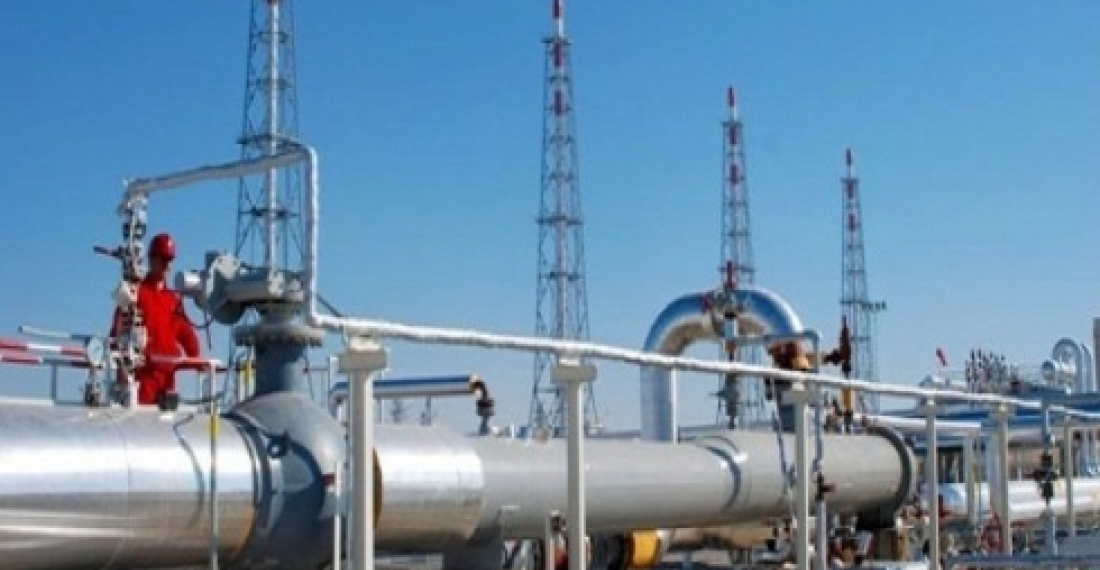Plans to construct the Trans-Anatolian Pipeline (TANAP) to move gas produced by Azerbaijan through Georgia and Turkey to the markets of Europe have now firmed up and the project is soon expected to be up and running.
TANAP will help satisfy demands for gas in both Turkey itself, as well as Europe. Initially it will supply 6bn cu m/yr of gas from Azerbaijan's Shah Deniz field to Turkey, with a further 10bn cu m/yr crossing Turkey on its way to Europe.
According to London's Financial Times newspaper this is "good news for Turkey, where demand is expected to exceed its existing import portfolio within two to three years, but even better news for the EU which has long been looking to secure access to new supplies to reduce reliance on existing sources. Chief among those is Russia's Gazprom, which meets about 25 per cent of EU gas demand, and in September became the subject of an anti-trust case by the EU."
Discussions on building a gas pipeline from the Caspian Sea to the European markets have been going on for a nuumber of years, with a number of projects being considered. However last year Turkey and Azerbaijan stepped in to propose TANAP. In December last year, the two countries signed a memorandum of understanding to establish a consortium that will build the gas pipeline. On June, 26 Azerbaijan and Turkey signed an intergovernmental agreement on TANAP implementation. TANAP is owned by Azerbaijan's state oil company, SOCAR, which has 80% share in it and the Turkish State Oil Company (BOTAS)which owns the rest of the shares.
BP's Deputy Director for Turkey, Hakan Turker, was quoted as saying that US$ 10 billion will be invested in Turkey within the framework of the project and US$ 2 billion in Georgia. Turker was quoted as saying that the Shafaq-Asiman block that BP is prospecting in partnership with SOCAR, could alone hold as much as 1tn cu m of gas.
Earlier this week the Azerbaijani Parliament ratified the agreement for the establishment of TANAP, a move welcomed by EU Energy Commissioner Guenther Oettinger . A statement released by the EU says:
"This Decision to ratify the TANAP agreement shows the concrete determination of Azerbaijan to bring its gas to Europe. This pipeline will mean that gas is brought to Europe's border, to then freely circulate within the European Union. It is a pleasure to welcome Azerbaijan, and more especially SOCAR, to the European Union's energy market."
The pipeline is expected to be finished in 2018.
Commonspace.eu political editor said in a comment that "the construction of the gas pipeline is of tremendous geo strategic importance and will help change the dynamic in the region beyond energy.
The pipeline will provide the basis for linking the European markets with energy suppliers further afield, particularly Turkmenistan. It will reduce the dependence of the European Union on Russian gas supplies. It consolidates the strategic relationship between Azerbaijan and Turkey that is already developed in many fields. It also makes Georgia increasingly important as a connector between Azerbaijan and Turkey for energy transit and transportation in general. Georgia's new Prime Minister Bidhzina Ivanishvili announced this week he will shortly visit Baku and praised Georgian-Azerbaijani relations.
Following on from the success of the Baku-Tbilisi Ceyhan Pipeline and other smaller projects TANAP will contribute substantially in consolidating co-operation and interdependence between Azerbaijan, Georgia and Turkey and this will have lasting impact on the region."
source: commonspace.eu with Trend, News.Az and the Financial Times
photo: A gas pipeline in Turkey (archive picture).







